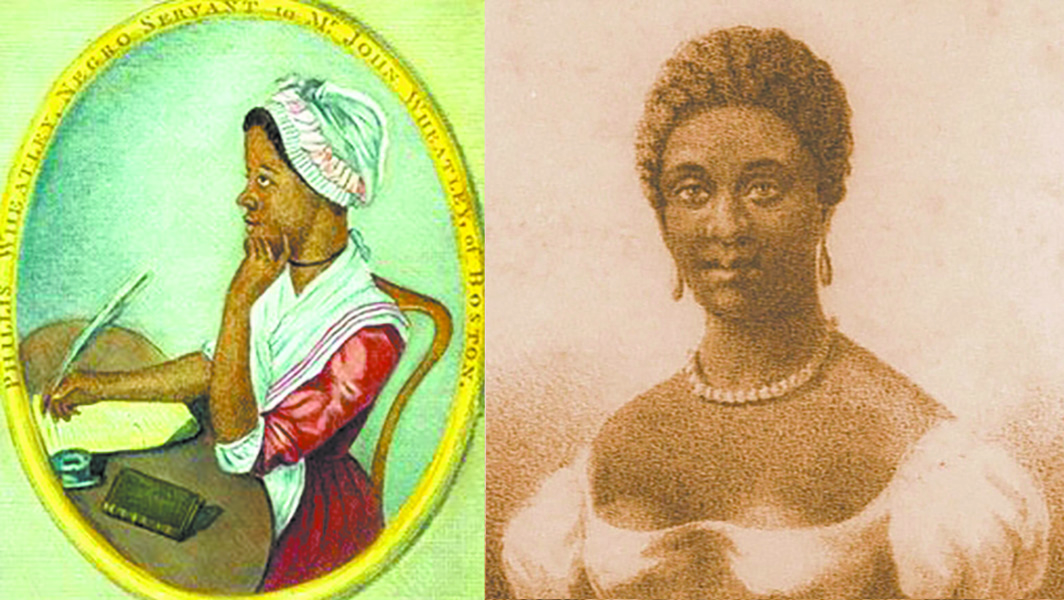Black Arts and Culture
Black History Month Black Literature: Slave Narratives to Hip-Hop
“Delve into the rich history of African-American literature, from the poignant slave narratives to the vibrant expression of hip-hop culture, encompassing the voices of renowned authors like Langston Hughes and Zora Neale Hurston.”
#BlackHistoryMonth #BlackLiterature #SlaveNarratives #HipHop #AfricanAmericanAuthors

New Journal and Guide Staff
The “literary arts” are what one might classify more along the lines of literature, including poetry and prose. These works can range from poems to novels to short stories to non fiction books to comics.
African-American literature or literary arts arose out of the experiences of Blacks in the United States, especially with regards to historic racism and discrimination. This form of communication offers the written word as a chosen way “to tell our own story.”
It is the body of literature produced in the United States by writers of African descent and began with the works of such late 18th-century writers as Phillis Wheatley.
Wheatley is considered the first recorded Black author of a published book of poetry in the 1700s.
Born in West Africa, she was kidnapped and sold into slavery, then bought by the Wheatley family of Boston. After she learned to read and write, they encouraged her poetry when they saw her talent.
During the 1800s before Emancipation, stories were told by Blacks and written that became known as slave narratives. These were generally first hand accounts of formerly enslaved Blacks who had escaped to the North and told about their flights to freedom.
There was an early distinction between the autographical literature of freed slaves and the literature of free Blacks born in the North. Those in the North often spoke out against enslavement and racial injustices.
At the turn of the 20th century, non-fiction works by authors such as W. E. B. Du Bois and Booker T. Washington debated how to confront racism in the United States.
This theme was common during the Civil Rights Movement, as authors such as Richard Wright and Gwendolyn Brooks wrote about issues of racial segregation and Black nationalism.
The Harlem Renaissance of the 1920s and 30s was a great period of flowering in Black literature and the arts, influenced both by writers who came North in the Great Migration and those who were immigrants from Jamaica and other Caribbean islands. Among the themes and issues explored in this literature were the role of Blacks within the larger American society, African-American culture, racism, and social equality.
Among the most renowned writers of the Harlem Renaissance was poet Langston Hughes, whose first work was published in 1921. He first received attention in the 1922 publication The Book of American Negro Poetry. Edited by James Weldon Johnson, this anthology featured the work of the period’s most talented poets, including Claude McKay, who also published three novels, Home to Harlem, Banjo and Banana Bottom, a nonfiction book, Harlem: Negro Metropolis, and a collection of short stories. Until his death in 1967, Hughes published nine volumes of poetry, eight books of short stories, two novels and a number of plays, children’s books and translations.
Another notable writer of the Harlem Renaissance was novelist Zora Neale Hurston, author of the classic novel Their Eyes Were Watching God (1937). Although Hurston wrote 14 books that ranged from anthropology to short stories to novel-length fiction, her writings fell into obscurity for decades.
Her work was rediscovered in the 1970s through Alice Walker’s 1975 article “In Search of Zora Neale Hurston,” published in Ms.
While Hurston and Hughes are the two most influential writers to come out of the Harlem Renaissance, a number of other writers also became well known during this period.
In broad terms, African-American literature can be defined as writings by Black people of African descent living in the United States, generally what it means to be an American.
Beginning in the 1970s, African-American literature reached the mainstream as books by Black writers continually achieved best-selling and award-winning status. This was also the time when the work of African-American writers began to be accepted by academia as a legitimate genre of American literature.
With the creation of Hip Hop in the 1970s, that form of literature has become popular in the African-American community.
In the 21st century, the Internet has facilitated publication of African-American literature. Founded in 1996 by Memphis Vaughn, TimBookTu has been a pioneer offering an online audience poetry, fiction, essays and other forms of the written word.
Source: Wikipedia














